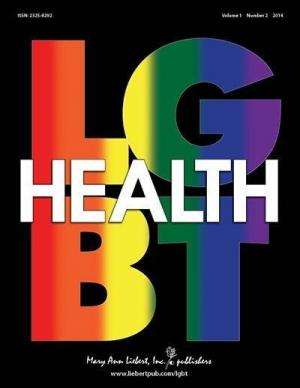©2014 Mary Ann Liebert, Inc., publishers
Transgender individuals are medically underserved and their healthcare needs incompletely understood in part because they represent a subpopulation whose health is rarely monitored by U.S. national surveillance systems. To address these issues, a new study compared methods of collecting and analyzing data to assess health disparities in a clinical sample of transgender individuals, as reported in an article published in LGBT Health.
Sari Reisner, ScD and coauthors, Harvard School of Public Health, Harvard Medical School/Massachusetts General Hospital, and Fenway Health, Boston MA, compared transgender and non-transgender patients on health measures such as substance abuse, HIV infection, lifetime suicide attempts, and social stressors including violence and discrimination. They report their findings in the article "Transgender Health Disparities: Comparing Full Cohort and Nested Matched Pair Study Designs in a Community Health Center".
"Clinic-based samples and patient-related data are under-utilized sources of information about transgender health, particularly in community-based, urban health centers that typically serve large numbers of transgender patients," says Editor-in-Chief William Byne, MD, PhD, Icahn School of Medicine at Mount Sinai, New York, NY. "Reisner and coauthors describe a method of handling such data to provide valid results while maximizing efficiency with respect to time and resources."
More information: The article is available free on the LGBT Health website at http://www.liebertpub.com/lgbt.
Provided by Mary Ann Liebert, Inc



















